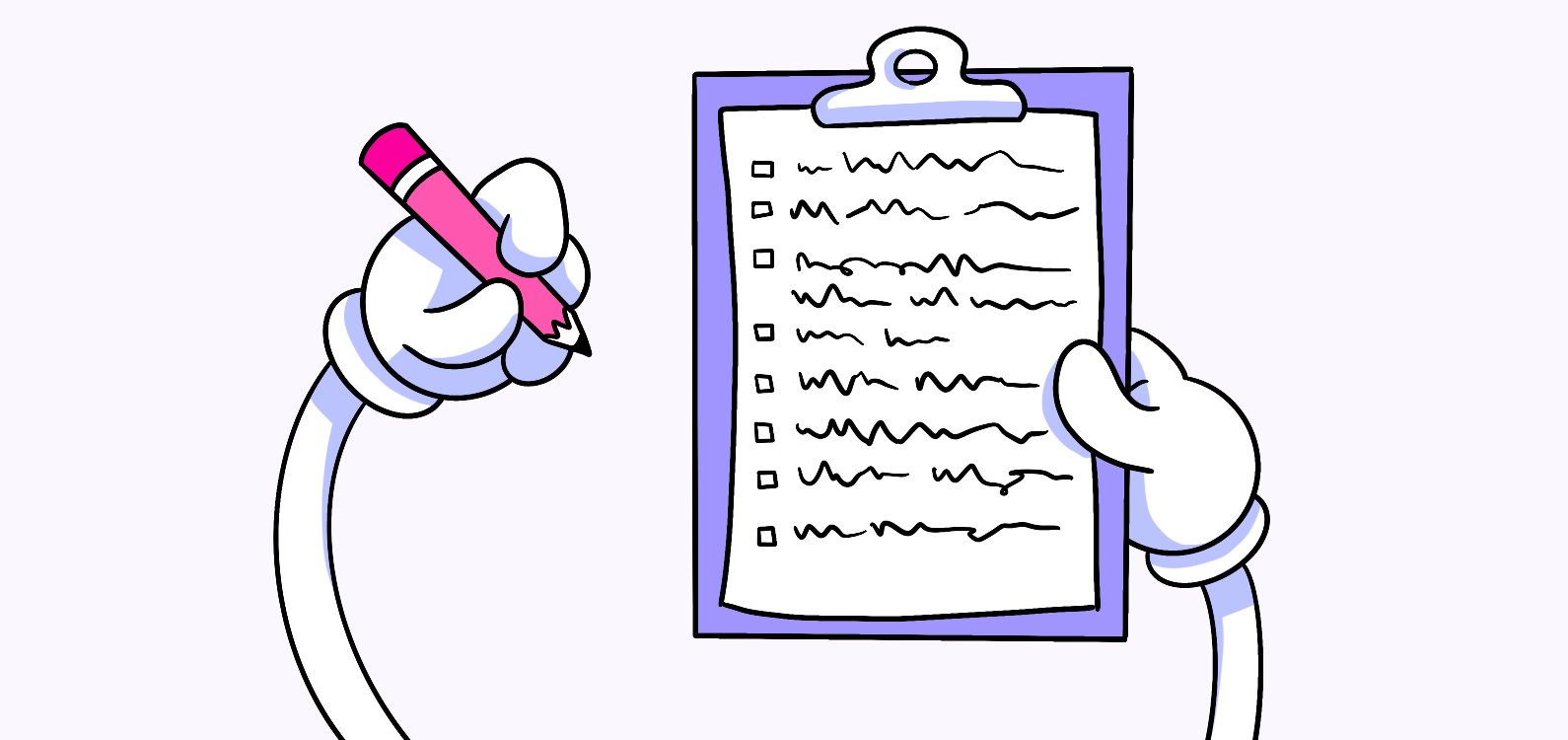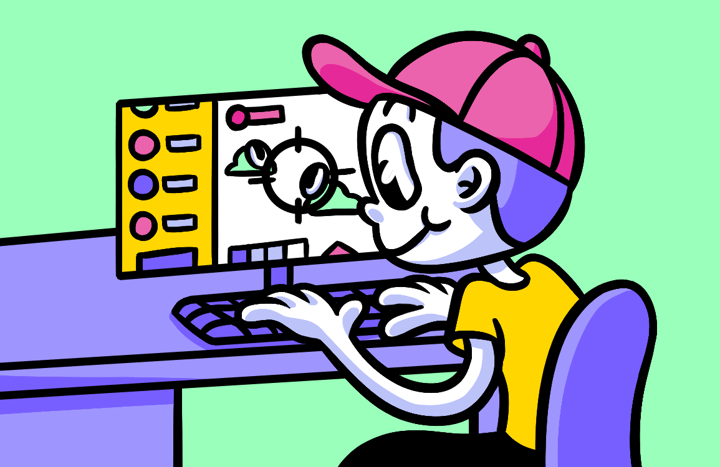The Zeigarnik Effect: Mental Clarity and Increased Motivation
Have you ever found yourself more focused and driven to complete a task when it’s left unfinished? Maybe you put off folding the laundry, and suddenly you have an overwhelming urge to tidy up and put everything away. Or perhaps you couldn’t stop thinking about a project you started at work, pushing you to stay late until it was done. This phenomenon is known as the Zeigarnik Effect, a psychological concept that reveals the power of unfinished tasks and the role of mental clarity in our daily lives.
🔩 The Nuts and Bolts:
- The Zeigarnik Effect drives focus on unfinished tasks. Our brains remember incomplete tasks better than finished ones, creating mental tension that pushes us toward completion.
- Mental clarity improves when tasks are completed. Unfinished tasks clutter our thoughts, reducing focus and productivity, while completing tasks creates a sense of relief and clarity.
- The Zeigarnik Effect can enhance productivity. By breaking large tasks into smaller, manageable pieces, we create opportunities for frequent closure, maintaining motivation and progress.
- Unfinished tasks create mental tension and drive. The mental burden of incomplete tasks compels us to seek resolution, keeping them at the forefront of our attention until resolved.
- The Zeigarnik Effect applies to both simple and complex tasks. Whether it’s folding laundry or completing a major project, unfinished tasks demand cognitive resources until completed.
- Leveraging the Zeigarnik Effect can reduce procrastination. Prioritizing and organizing unfinished tasks allows us to manage our workload better and avoid the stress of looming deadlines.
- Closure rituals can relieve the mental weight of unfinished tasks. Creating a routine to reflect on accomplishments at the end of the day helps achieve mental closure and reduce task-related stress.
Understanding the Zeigarnik Effect
Psychology provides us with fascinating insights into the human mind. One such insight is the Zeigarnik Effect, named after the psychologist Bluma Zeigarnik. She noticed that people have a strong tendency to remember incomplete or interrupted tasks better than completed ones. This effect suggests that unfinished tasks occupy our thoughts and create a sense of mental tension, driving us to seek closure.
Let’s delve deeper into the intricacies of the Zeigarnik Effect and explore how it influences our behavior and cognition.
The Psychology Behind Unfinished Tasks
To grasp the power of the Zeigarnik Effect, it’s important to understand how our minds handle unfinished tasks. When we embark on a new endeavor, our brain becomes engaged and forms a mental representation of the task. This mental representation remains active as long as the task remains incomplete, leading to heightened awareness and cognition.
Imagine you’re working on a challenging project at work. The unfinished nature of the task keeps it at the forefront of your mind, even when you’re not actively working on it. You find yourself mulling over potential solutions, brainstorming ideas, and constantly seeking opportunities to make progress. This mental tension compels us to take action and complete the task to achieve closure.
Interestingly, the Zeigarnik Effect is not limited to complex tasks or work-related projects. It can also manifest in our daily lives. For example, have you ever experienced the nagging feeling of an unfinished household chore? Whether it’s a pile of unwashed dishes or an incomplete home improvement project, these unfinished tasks can create a persistent mental burden, urging us to find resolution.
Build something your buyers *truly* want
Subscribe to Closing the Gap—a newsletter to help makers and doers get closer to customers. Learn more.
We believe in protecting your data. Here’s our Privacy Policy.
The Role of Mental Clarity in Task Completion
Alongside the Zeigarnik Effect, mental clarity plays a significant role in our ability to complete tasks effectively. When our minds are cluttered with unfinished tasks, it becomes challenging to focus on the present moment and fully commit to any particular task at hand.
Think about a time when you had multiple unfinished tasks competing for your attention. Your mind may have felt scattered, making it difficult to concentrate and prioritize effectively. However, when you achieve mental clarity by completing or organizing your pending tasks, you experience a sense of relief and renewed focus.
Mental clarity allows us to prioritize effectively, make decisions with confidence, and maintain a sense of purpose and accomplishment. When our minds are free from the weight of unfinished tasks, we can fully immerse ourselves in the present moment and give our undivided attention to the task at hand.
Furthermore, achieving closure on unfinished tasks can boost our motivation and productivity. As we check off items from our to-do list, we experience a sense of accomplishment, which fuels our drive to tackle new challenges.
In conclusion, the Zeigarnik Effect reminds us of the power of unfinished tasks on our cognitive processes. It highlights the importance of seeking closure and achieving mental clarity to enhance our focus, productivity, and overall well-being.
Laws of UX
The Science of the Zeigarnik Effect
Now that we understand the basics of the Zeigarnik Effect, let’s delve into the cognitive process that drives this phenomenon and explore its impact on productivity.
The Cognitive Process of Remembering Unfinished Tasks
Our minds have a remarkable ability to remember unfinished tasks with great detail. In a study conducted by Zeigarnik, participants were given a series of incomplete tasks. They found that people were more likely to recall the unfinished tasks compared to the completed ones. This suggests that our brains naturally prioritize the processing of incomplete information, keeping it at the forefront of our thoughts until it is resolved.
This cognitive process of remembering unfinished tasks is rooted in our brain’s desire for closure. When we start a task but do not complete it, our brain perceives it as an open loop that needs to be closed. This creates a sense of tension and discomfort, driving us to seek resolution. As a result, our brain keeps reminding us of the unfinished task, making it difficult to focus on other things until it is completed.
Interestingly, the Zeigarnik Effect is not limited to tasks that are complex or important. Even simple and mundane tasks can trigger this phenomenon. Whether it’s a phone call that needs to be returned, an email that needs to be sent, or a household chore that needs to be done, our brain treats all unfinished tasks with equal importance, urging us to take action and achieve closure.
The Impact of the Zeigarnik Effect on Productivity
The Zeigarnik Effect has profound implications for our productivity. It serves as a powerful motivator that drives us to complete tasks and achieve closure. Understanding this effect can help us harness its potential and use it to our advantage. Rather than allowing our unfinished tasks to create stress and overwhelm, we can leverage them as a source of personal drive and focus.
When we have a clear understanding of the Zeigarnik Effect, we can strategically use it to enhance our productivity. By breaking down complex tasks into smaller, more manageable subtasks, we create a series of mini-goals that provide a sense of progress and closure. This not only helps us stay motivated but also prevents us from feeling overwhelmed by the enormity of the task at hand.
Furthermore, the Zeigarnik Effect can be utilized to improve our time management skills. By prioritizing our unfinished tasks and allocating dedicated time slots to work on them, we can ensure that we make consistent progress and avoid procrastination. This proactive approach allows us to stay focused and maintain a sense of momentum, ultimately leading to increased productivity and efficiency.
In conclusion, the Zeigarnik Effect is a fascinating cognitive phenomenon that highlights our brain’s natural inclination to remember and prioritize unfinished tasks. By understanding this effect and leveraging it to our advantage, we can enhance our productivity, reduce stress, and achieve a greater sense of accomplishment in our daily lives.
Harnessing the Power of the Zeigarnik Effect
Now that we appreciate the impact of the Zeigarnik Effect, let’s explore strategies for utilizing unfinished tasks to our advantage and improving our mental clarity.
Strategies for Using Unfinished Tasks to Your Advantage
Firstly, identify unfinished tasks that are vital to your goals and create a plan to tackle them. Break them down into smaller, manageable steps and prioritize them accordingly. With each step completed, you’ll experience a sense of progress and accomplishment that fuels your motivation to continue. Remembering the Zeigarnik Effect, you can harness the power of unfinished tasks to maintain focus and drive towards your desired outcomes.
Improving Mental Clarity for Better Task Management
Maintaining mental clarity is essential for effective task management. To improve mental clarity, practice mindfulness and engage in activities that promote relaxation and focus, such as meditation or journaling. By cultivating a clear and calm mind, you’ll be better equipped to handle the challenges and complexities of everyday life, all while harnessing the power of the Zeigarnik Effect.
The Zeigarnik Effect in Everyday Life
The Zeigarnik Effect isn’t limited to specific environments or tasks—it extends into various aspects of our lives, both personal and professional. Let’s explore how this phenomenon manifests in our everyday experiences.
Recognizing the Zeigarnik Effect in Personal Experiences
Think about the last time you watched an engaging TV series or read an intriguing book. Chances are, if the story ended on a cliffhanger, you had an insatiable desire to find out what happens next. The unresolved plotlines create mental tension, compelling you to seek closure by continuing the series or reading the next book. This desire for closure is an example of the Zeigarnik Effect in action.
The Zeigarnik Effect in Professional Settings
In the workplace, the Zeigarnik Effect can influence our productivity and performance. Unfinished tasks or unresolved issues often consume our thoughts, leading to reduced focus and efficiency. Recognizing this effect can help us implement strategies to manage our workload effectively, prioritize tasks, and proactively address any unfinished business. By doing so, we can maintain mental clarity and optimize our work performance.
Overcoming the Negative Aspects of the Zeigarnik Effect
While the Zeigarnik Effect can be a powerful motivator, it can also lead to stress and overwhelm when left unchecked. Let’s explore techniques for achieving closure and maintaining mental clarity in the face of unfinished tasks.
Dealing with the Stress of Unfinished Tasks
Unfinished tasks can create stress and anxiety, especially when they accumulate and feel unmanageable. To tackle this, break down your to-do list into smaller, actionable items. Prioritize them based on urgency and importance. By focusing on one task at a time and crossing them off your list as you go, you’ll experience a sense of accomplishment and reduce the mental burden associated with unfinished tasks.
Techniques for Achieving Closure and Mental Clarity
To achieve closure and maintain mental clarity, create a ritual or routine that symbolizes the completion of tasks. For example, at the end of the workday, review your accomplishments, organize your workspace, and mentally transition to personal time. By consciously acknowledging the progress made and mentally shifting gears, you can alleviate the mental tension associated with unfinished tasks and cultivate a sense of closure and mental clarity.
Embracing the Zeigarnik Effect for a Productive Mindset
The Zeigarnik Effect highlights the connection between unfinished tasks and our mental clarity. By understanding this psychological concept, we can harness its power and transform it into a productive mindset. By effectively managing our tasks, prioritizing with purpose, and cultivating mental clarity, we can maximize our potential and achieve our desired goals. So, embrace the Zeigarnik Effect, and unleash the power of unfinished tasks and the clarity it brings into your life.
Zeigarnik Effect FAQs
The Zeigarnik Effect is a psychological phenomenon where people remember unfinished or interrupted tasks better than completed ones. This creates mental tension that motivates us to complete these tasks and achieve closure.
The Zeigarnik Effect occurs because our brains perceive unfinished tasks as open loops that need to be resolved. This sense of incompletion creates mental tension, which drives us to keep thinking about the task until it is finished.
You can use the Zeigarnik Effect to boost productivity by breaking down large tasks into smaller steps. Each step provides a sense of progress and closure, keeping you motivated and focused on completing the entire task.
In daily life, the Zeigarnik Effect manifests when unfinished tasks, such as household chores or work projects, occupy mental space. This makes it harder to focus on other tasks until the unfinished ones are addressed.
Yes, when tasks pile up without being completed, the mental tension caused by the Zeigarnik Effect can lead to stress and overwhelm. Managing your to-do list and completing tasks one at a time can help alleviate this stress.
Prioritize your tasks and break them into smaller, manageable steps. Use techniques like time blocking or creating a structured plan to tackle unfinished tasks, helping you stay focused and maintain mental clarity.
To avoid feeling overwhelmed by unfinished tasks, create routines that mark the end of your workday, use closure rituals, or engage in mindfulness practices to reduce the mental load associated with incomplete tasks.



